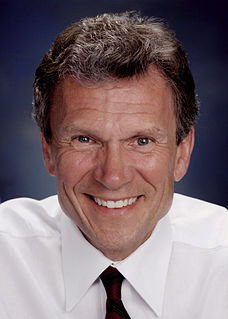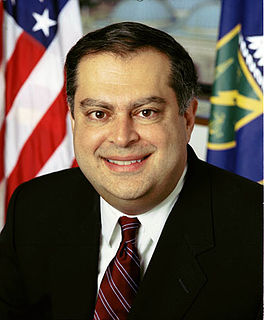A Quote by Asa Hutchinson
While we don't have the authority on the state level to change federal policy, my fellow governors and I do have a duty to protect our states' citizens, and we have a personal responsibility to act when we have the power to do so.
Related Quotes
I regard the state of which I am a citizen as a public utility, like the organization that supplies me with water, gas, and electricity. I feel that it is my civic duty to pay my taxes as well as my other bills, and that it is my moral duty to make an honest declaration of my income to the income tax authorities. But I do not feel that I and my fellow citizens have a religious duty to sacrifice our lives in war on behalf of our own state, and, a fortiori, I do not feel that we have an obligation or a right to kill and maim citizens of other states or to devastate their land.
How can you raise the level of consciousness on this? How can you get the federal government to take the responsibility? Florida does not have a foreign policy. This is a federal policy or absence of federal policy. It's so clear that we're not being treated fairly. We have to come up with a solution. It hurts your head trying to figure out what to do.
The Constitution does not protect the sovereignty of States for the benefit of the States or state governments as abstract political entities, or even for the benefit of the public officials governing the States. To the contrary, the Constitution divides authority between federal and state governments for the protection of individuals.
Strictly enforce the scale of "fixed responsibility." The first and foremost level of responsibility is with the individual himself; the second level is the family; then the church; next the community, finally the county, and, in a disaster or emergency, the state. Under no circumstances is the federal government to become involved in public welfare. The Founders felt it would corrupt the government and also the poor. No Constitutional authority exists for the federal government to participate in charity or welfare.
Under the constitution, there was never meant to be a federal police force. Even an FBI limited only to investigations was not accepted until this century. Yet today, fueled by the federal government's misdirected war on drugs, radical environmentalism, and the aggressive behavior of the nanny state, we have witnessed the massive buildup of a virtual army of armed regulators prowling the States where they have no legal authority. The sacrifice of individual responsibility and the concept of local government by the majority of American citizens has permitted the army of bureaucrats to thrive.
Literally minutes before the Senate cast its vote, the administration sought to add the words 'in the United States and' after 'appropriate force' in the agreed-upon text. This last-minute change would have given the president broad authority to exercise expansive powers not just overseas-where we all understood he wanted authority to act-but right here in the United States, potentially against American citizens. I could see no justification for Congress to accede to this extraordinary request for additional authority. I refused.
The federal government neither has the power to site transmission lines, nor do we build them. That's done, as people know, in their own communities. The siting decisions and the permitting is done at the local level, or by state governments if it's interstate in nature. And federal government - this is one area we have no authority.




































